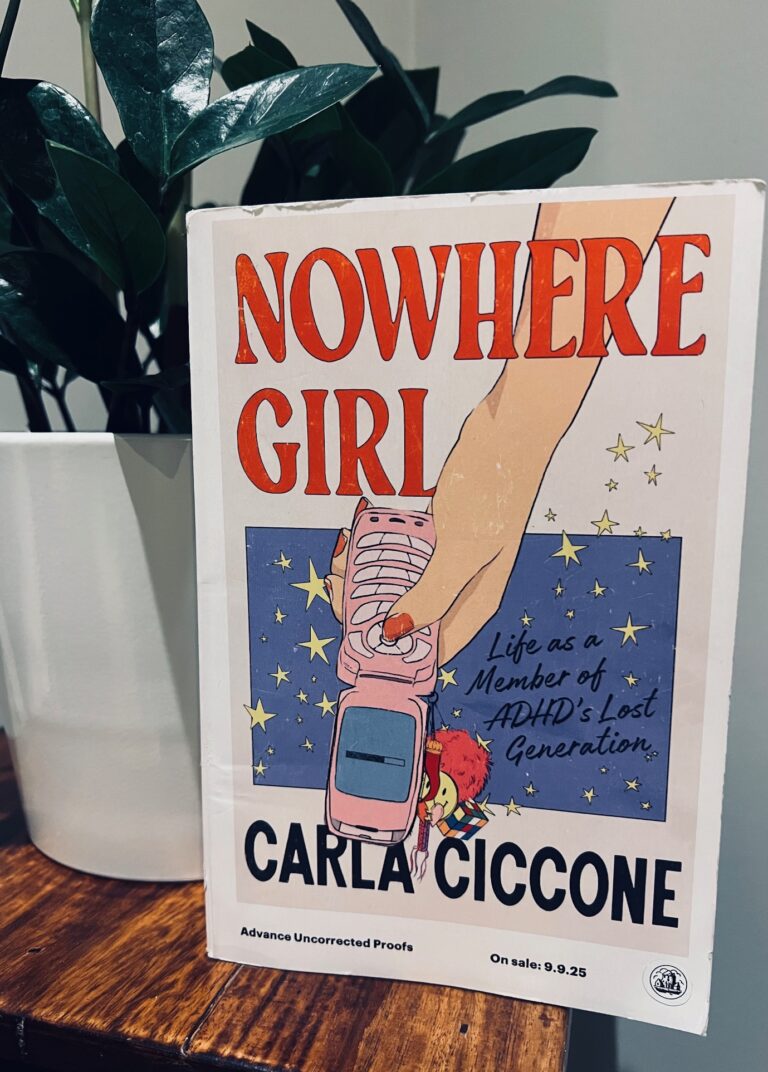Book Review: Moon Road by Sarah Leipciger

Sarah Leipciger is one of those quiet, Canlit writers who release books that are well-written, well-reviewed, but tend to stay under the radar, so my international readers likely aren’t familiar with her. I reviewed another one of her books here if you are curious. And I’m always happy to introduce new readers to her! About a year since its release, I finally read her latest book, Moon Road, and was delighted with what I discovered between the covers. Although it is not a thriller there is a mystery waiting to be solved, and I found myself holding my breath as I neared the big reveal at the end of the book. It’s not gimmicky or shocking, it’s simply life, and this author writes it well.
Plot Summary
Katherine and Yannick married very young, and quickly had a daughter, Una. They divorced only a few years after Una was born, but maintained a strong friendship, even while Yannick remarried two more times, and had more children with his new partners. Growing up in small-town southern Ontario, Una decided to travel across Canada while in her early twenties, and while living on Vancouver Island, she disappeared completely. 19 years have passed since then, but there’s been a break in the case, so Yannick and Katherine decide to drive back out west together to face what’s coming. This is especially significant, as they hadn’t spoken in those 19 years. As they make the long drive across the country, they are faced with their memories of their daughter, mistakes they’ve made since, and the return of the new grief and anxiety they experienced when Una first disappeared. Interspersed with the present day experience of their road trip are short chapters written from Una’s perspective of her last day before she was reported missing.
My Thoughts
In Una’s short chapters, Leipciger plays with the reader, ending some of her sections on a cliffhanger seeming to suggest a certain outcome, but then we revisit her again and we realize that Una’s disappearance isn’t so simple, or obvious. This novel isn’t out to shock or surprise the reader and it’s not so focused on Una or theories of her disappearance. Instead, the story is focused on family dynamics, and the relationships we hold over long periods of time; how does a major event affect those we love? Why do these traumatic events bind some, and push apart others? Kathleen and Yannick are very different people, and although it’s not hard to understand why they got together in the first place, it’s easy to see why things could never last between them. However, the history and the grief they share is something that binds them irrevocably together, and this is what lends the novel a hopeful air.
In addition to the the complicated relationship dynamics of the book, Leipciger’s writing truly shines in the descriptions of Canada during the long road trip west. Although it doesn’t take up too much of each page, the landscape descriptions are a love letter to my country, and a reminder of just how vast our land truly is (although apologies to those on the furthermost east coast, as they start in Ontario so miss out on everything east of there). When the couple manages to work their way through the maze of Calgary, they describe heading west, and mistaking the Rocky Mountains up ahead for storm clouds. I’ve made this mistake myself, because they seem to rise out of nowhere as a grey wall. Anyone from Southern Alberta would recognize the following quote and realize how accurate these descriptions are:
“The view changes with every curve of the road. Lakes and tall pines on either side of the road, a moose crossing, a weedy train track, a series of peaks to the north the colour of wet sand. In fact, these peaks look just like sandcastle turrets, like the kind you make on the beach when you dribble waterlogged sand from your fist, layering it in dollops.
Ahead, the true Rocky Mountains, the real deal. Sheer, crisp cuts into the sky. Kathleen feels the air getting dryer, thinner. Nothing to distort the view” (p. 280, Moon Road by Sarah Leipciger, ARC edition).
This part of the book reminded me of the first time I had driven through the Rocky Mountains. I was almost frightened by the massive landscape around me, hardly believing how large these mountains could be. But the beautiful scenery descriptions continue when Yannick and Katherine arrive at the Pacific Ocean, still unsure if their daughter is alive or dead, in the water or on the shore. The word ‘closure’ is never used, but it’s obvious this what they are searching for. You’ll have to read the book yourself to discover if they ever find it.






I’d like to read this one! And, superficial comment alert: I love this format for the Penguin ARCs.
I know right? I have yet to see another ARC like this however, it’s so weird. It’s like they were trying it out, and changed their mind LOL